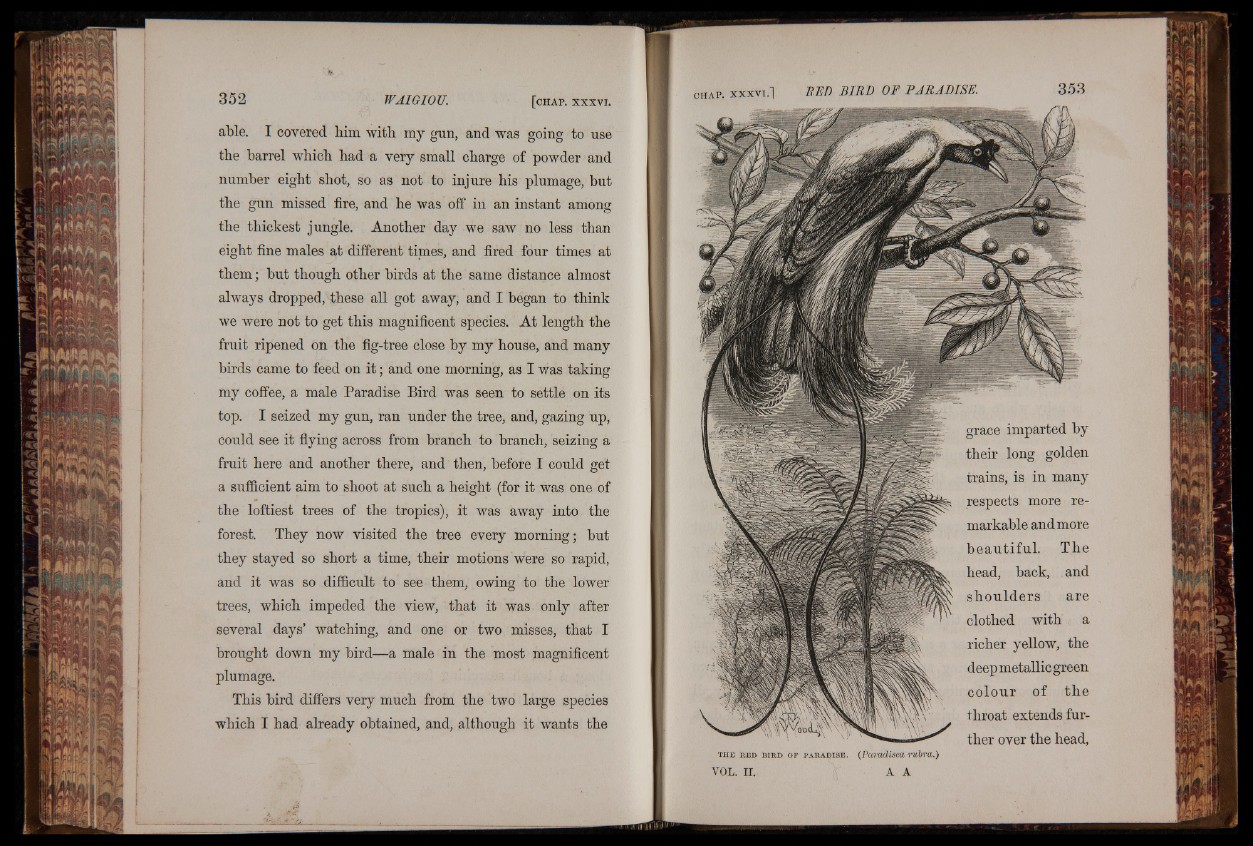
able. I covered him with my gun, and was going to use
the barrel which had a very small charge of powder and
number eight shot, so as not to injure his plumage, but
the gun missed fire, and he was off in an instant among
the thickest jungle. Another day we saw no less than
eight fine males at different times, and fired four times at
them; but though other birds at the same distance almost
always dropped, these all got away, and I began to think
we were not to get this magnificent species. At length the
fruit ripened on the fig-tree close by my house, and many
birds came to feed on i t ; and one morning, as I was taking
my coffee, a male Paradise Bird was seen to settle on its
top. I seized my gun, ran under the tree, and, gazing up,
could see it flying across from branch to branch, seizing a
fruit here and another there, and then, before I could get
a sufficient aim to shoot at such a height (for it was one of
the loftiest trees of the tropics), it was away into the
forest. They now visited the tree every morning; but
they stayed so short a time, their motions were so rapid,
and it was so difficult to see them, owing to the lower
trees, which impeded the view, that it was only after
several days’ watching, and one or two misses, that I
brought down my bird—a male in the most magnificent
plumage.
This bird differs very much from the two large species
which I had already obtained, and, although it wants the
grace imparted by
their long golden
trains, is in many
respects more remarkable
and more
beautiful. The
head, back, and
shoulders are
clothed with a
richer yellow, the
deep metallic green
colour of th e
throat extends further
over the head,
t h e r e d b ir d o f p a r a d is e . (Paradisea rubra.)
VOL. II. A A